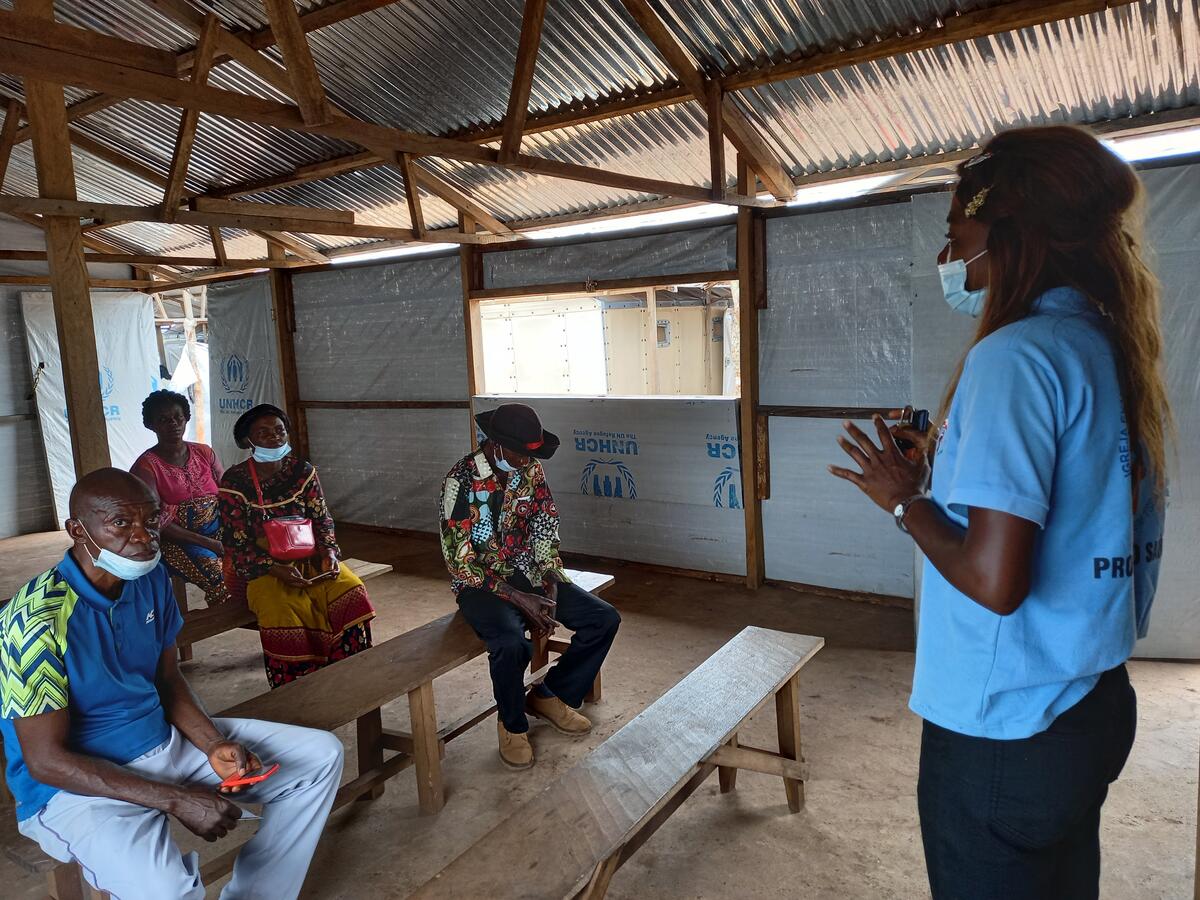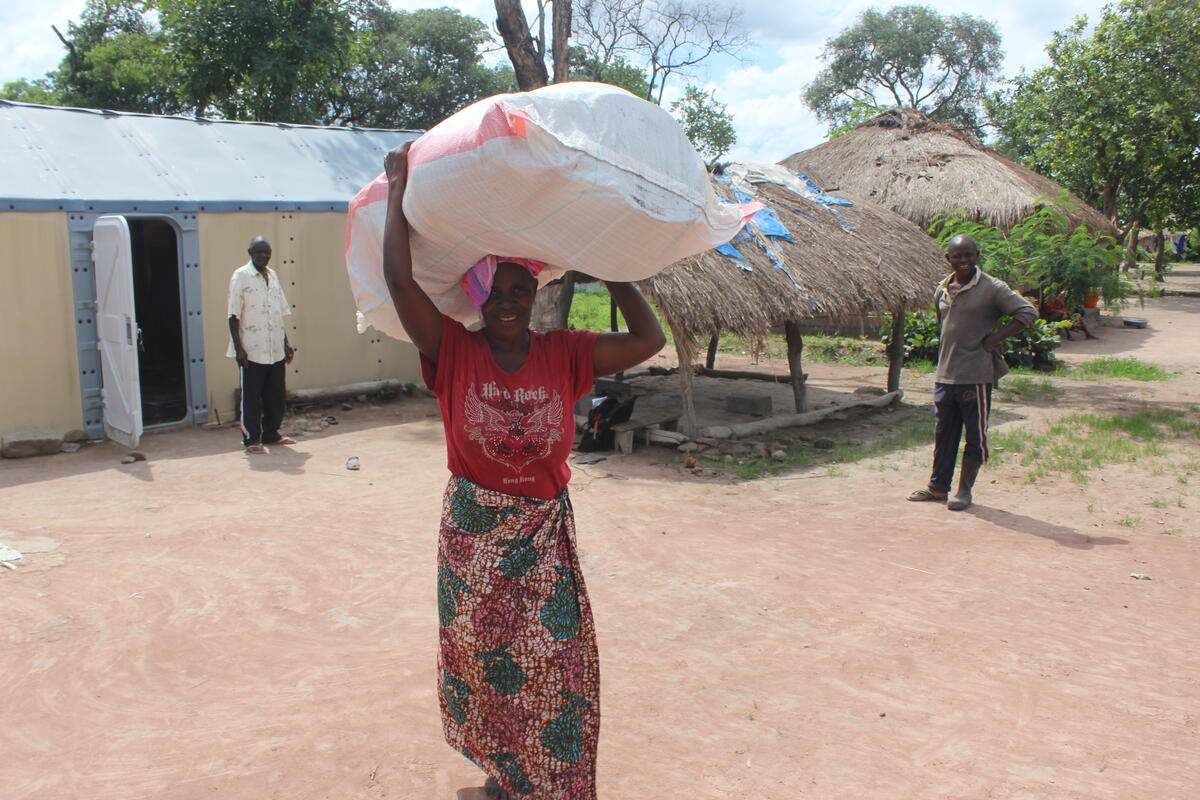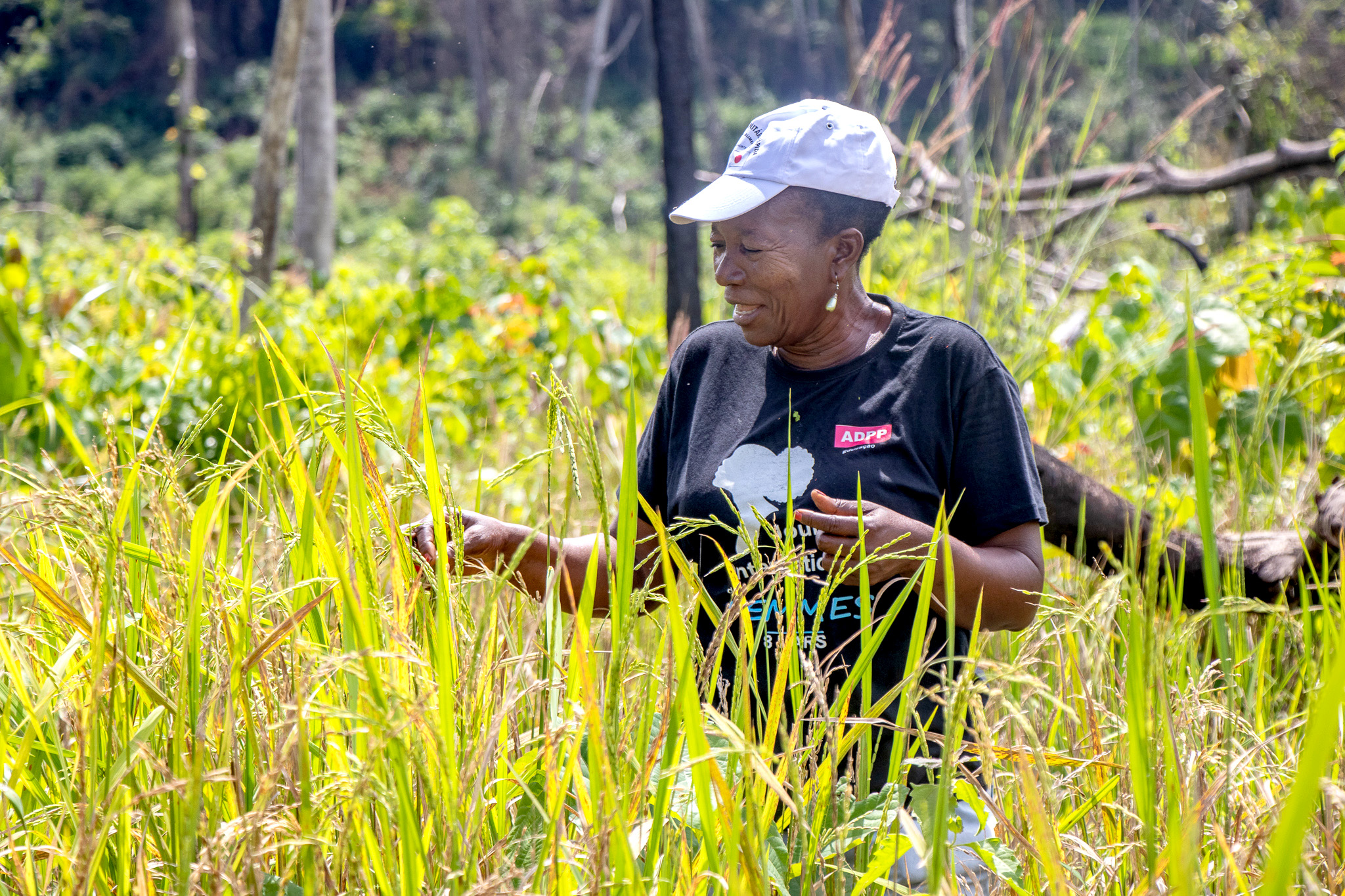One thousand former UNITA soldiers transferred to new camp in Zambia
One thousand former UNITA soldiers transferred to new camp in Zambia
LUSAKA, Zambia, Nov. 2 (UNHCR) - More than one thousand former UNITA rebel soldiers have been transferred from the Nangweshi refugee camp near the Angolan border to a special site for former soldiers established last year in eastern Zambia, UNHCR said Friday.
A total of 1,065 former combatants and their families were moved in October, with another group of about 300 people still waiting to be transported to the new camp in Ukwimi. The soldiers, including rebel commanders, arrived in Zambia last year after the fall of Jamba, the UNITA stronghold in the Angolan province of Cuando Cubango.
All of those transferred have laid down their arms in compliance with the 1951 Geneva Convention denying refugee status to soldiers who refuse to give up their weapons. After a waiting period to make sure they are not still active in the war effort, the former soldiers can apply for refugee status determination, which in the case of the former UNITA soldiers was carried out in July.
The 2,000 kilometre, two-day bus trip was organized by the International Organization for Migration. The former combatants joined about 1,200 others who were already in Ukwimi, a former camp for Mozambican refugees which was re-opened in October of last year in order to remove the former soldiers from civilian camps in Zambia's western and north-western provinces.
The refugee agency and the government of Zambia agreed to the transfer in order to maintain the civilian character of the Nangweshi refugee camp and avoid the risk of militarisation or recruitment in the camp. The site is currently home to more than 15,000 Angolan refugees who fled the 25-year civil war in their country.
Meanwhile, the situation along the Angolan border remains worrisome as refugees continue to arrive in large numbers into Zambia's Western province. An estimated 1,000 people arrived over the past two days in the towns of Mambolomoka and Sikongo, in south-west Zambia. An additional two hundred persons arrived in Zambezi district further north, according to UNHCR.
The new arrivals report continuous fighting between government forces and UNITA rebels as both sides try to consolidate their positions before the start of the rainy season. Others have been displaced inside Angola, fleeing north along the border with Zambia as a government offensive against UNITA positions in the area appeared to intensify.
Since last year over 10,000 Angolan asylum seekers have fled to Zambia, bringing the total of Angolan refugees to 208,000 persons in the country.
The refugees, many of them children and amputees from land mines, are in a deplorable condition given the lack of humanitarian assistance and the ongoing fighting, UNHCR reported. The U.N. agency continues to transfer the new arrivals away from the border to the safer Nangweshi site.
UNHCR said it has seven trucks available able to transport an average of 200 people a day over the 140 kilometres. Road conditions are gradually becoming more difficult as rains have begun in certain parts of the province. In Nangweshi, UNHCR's health partner African Humanitarian Action is vaccinating children against polio and measles and providing them with vitamin A.
Refugees report difficulties in crossing the border because of the fighting. Some of them also say they had to pay a fee to cross the Cuando Cubango River by canoe. The river flows in Angola but in certain areas marks the boundary between Angola and Zambia.
Further north in the Zambezi district, across from Angola's Moxico province, a couple of hundred new arrivals were recorded over the past four days, a sign that people who had been displaced towards the north have also now started crossing into Zambia.








